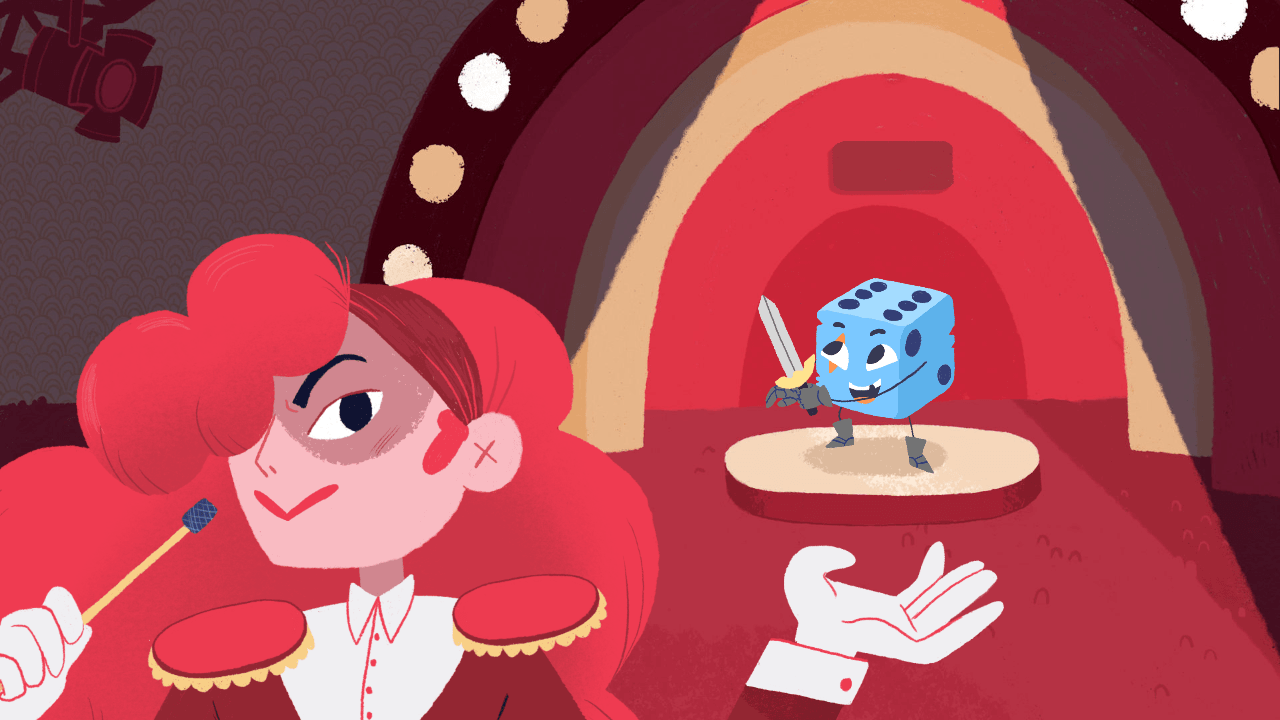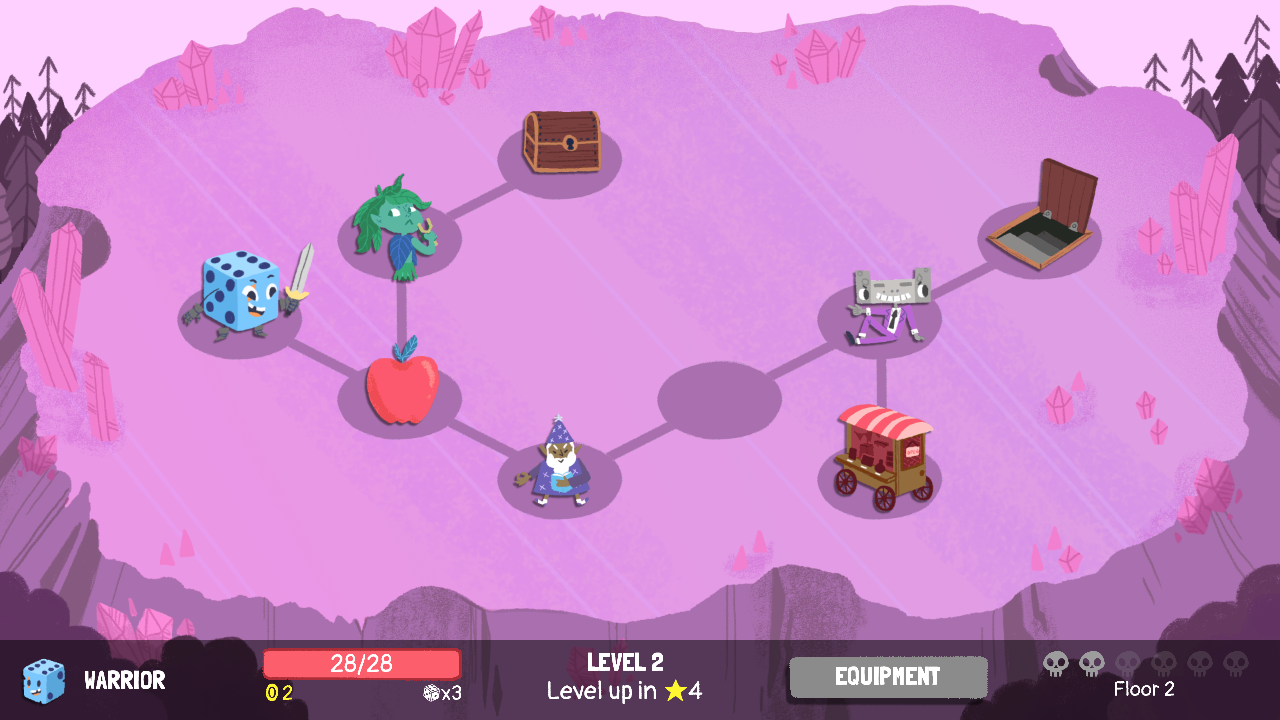[ad_1]
In what has been a very long time coming, this week marks the complete launch of itch.io-favorite Dicey Dungeons. Indie famous person Terry Cavanagh (and crew) has turned from puzzles and motion to craft what is among the most accessible routes into two of my favourite however difficult genres: Roguelikes and Deckbuilders.
If you recognize something about Dicey Dungeons, you in all probability know that it’s a recreation totally ruled by cube. No not like craps. Taking the position of sentient cube in a wide range of customary fantasy roles gamers discover, battle, and ultimately overcome a whole dice-themed recreation present of peril and cuteness. It’s a extremely charming design that each embraces the random nature of cube and smoothes over a few of its extra irritating elements.

For the uninitiated, Roguelikes could be an intimidating nightmare. Conventional roguelikes are recognized for classy interfaces, a buffet of choices with little context, and probably most disorienting: randomized content material. A lot of this extends to different extra trendy fusions and takes on the style which tie development to studying and understanding techniques fairly than particular person items of stage design. A part of what I like about Dicey Dungeons comes from its discount of all of those techniques to only what makes the sport attention-grabbing. As a substitute of huge open maps, you get small generated dungeons that scale back the big palette of choices to only mechanical interplay between the second half of the sport’s peanut butter and chocolate style fusion: deckbuilding.

Okay so I’ve been calling the opposite style that Dicey Dungeons introduces Deckbuilding, however it goes about it in a sensible albeit roundabout method. In any roguelike with stats or distinctive gadgets, the idea of synergy turns into one of the vital essential components in powering up. Most of my successes in Roguelikes come from determining what my character “does” and making all of my selections in service of no matter this core interplay is. Dicey Dungeons has the same system in choosing expertise, however the place it teaches deckbuilding is within the cube on the core of the sport. Every flip throughout fight you’re in a position to “draw” cube after which spend them on a wide range of assaults or boosts. This implies you’re making an attempt to construct a scenario the place there are not any numbers in your cube that can depart you at a drawback (lifeless attracts in deckbuildng parlance). In educating folks to play deckbuilding video games, that is typically the idea that I’ve probably the most bother speaking and someway Dicey Dungeons completely nails the best and most accessible model of this core thought.
I’ve written about Dicey Dungeons on this weblog earlier than whereas it was in early entry, so I is perhaps repeating myself with this however I feel Dicey Dungeons is a subtly sensible recreation and it’s laborious to place that intelligence into phrases. Wanting on the recreation you would possibly see its cute artwork model, otherwise you would possibly get the gist of the fight in a lets play video, however sitting all the way down to play it and spending time studying the way it works spits you out the opposite finish with a brand new skillset. There’s an training in Dicey Dungeons that by no means falls into lazy lecture or irritating exams, it’s the form of design that’s so good as a result of it will get instantly out of the way in which and solely reveals itself on reflection.
[ad_2]